Inkotanyi (2017)
Género : Documental
Tiempo de ejecución : 2H 6M
Director : Christophe Cotteret
Sinopsis
For the first time, light is shed on the Inkotanyi politico-military movement that ended the genocide of the Rwandan Tutsi in 1994 and is led by Paul Kagame, currently President of Rwanda.
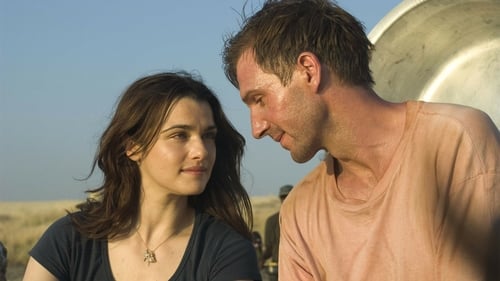
Basada en el Best Seller de espionaje de John le Carré, cuenta la historia de Justin Quayle (Fiennes) un diplomático británico destinado en Kenya cuya mujer es asesinada junto a un hombre sospechoso de ser su amante, un activista defensor de los derechos humanos de la región. Quayle decide entonces investigar los asesinatos, y comienza a descubrir mucho más de lo que esperaba...
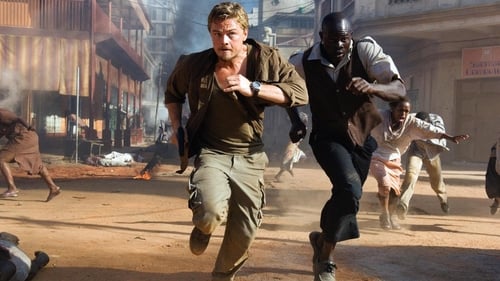
Con el caos y la guerra civil que en los años 90 envolvió Sierra Leona como telón de fondo, "Diamante de sangre" es la historia de Danny Archer, un ex mercenario sudafricano, y Solomon Vandy, un pescador de Mende. Ambos hombres son africanos, pero sus historias y sus circunstancias son completamente diferentes. Sus destinos se unen en la búsqueda conjunta para recuperar un diamante rosa, poco común, que puede transformar sus vidas. Mientras se halla en prisión por contrabando, Archer se entera de que Solomon, quien fue separado de su familia y obligado a trabajar en las minas de diamantes, ha encontrado y escondido la extraordinaria piedra sin pulir. Con la ayuda de Maddy Bowen, una periodista americana cuyo idealismo se ve atenuado por una profunda relación con Archer, los dos hombres emprenden un viaje por territorio rebelde.
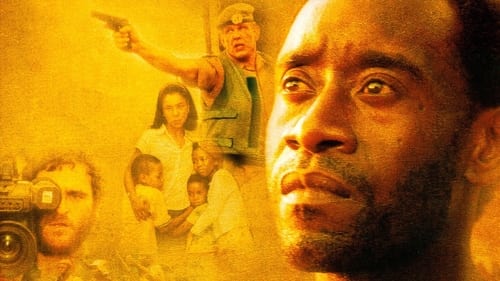
1994, guerra civil de Ruanda. Los odios ancestrales entre los hutu (la etnia dominante) y los tutsi provocan el asesinato del presidente del país, disturbios en las calles y, finalmente, una terrible matanza entre las dos etnias. Paul, que es hutu, trabaja como gerente de un hotel de Kigali y, cuando empiezan los disturbios, decide que el mejor refugio es precisamente el hotel. Y hacia allí organiza una huida desesperada acompañado no sólo de su familia, sino también de sus vecinos tutsi. Basada en hechos reales.
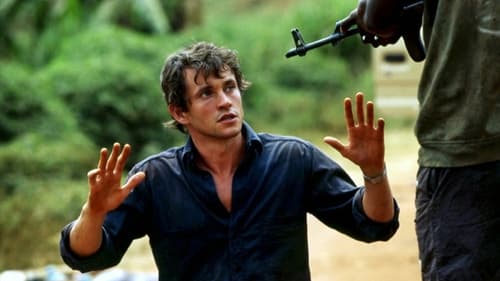
Dos occidentales, un sacerdote y un profesor se encuentran en medio del genocidio de Ruanda y se enfrentan a un dilema moral. ¿Ponerse en peligro y proteger a los refugiados, o escapar del país con vida? Basado en una historia real.

Canadian Lt. General Romeo Dallaire was the military commander of the UN mission in Rwanda and this movie is personal and, all too true, story of his time there during the genocide of 1994. It is not quite as moving as the earlier Hotel Rwanda and is less geared to drama and emotional manipulation, but it is still grim and upsetting.
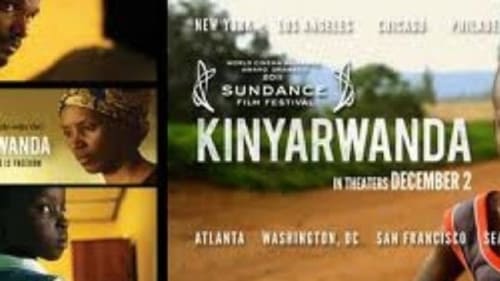
A young Tutsi woman and a young Hutu man fall in love amid chaos; a soldier struggles to foster a greater good while absent from her family; and a priest grapples with his faith in the face of unspeakable horror.

The story of Canadian Lt. Gen. Roméo Dallaire and his controversial command of the United Nations mission to Rwanda during the 1994 genocide. The documentary was inspired by the book Shake Hands with the Devil: The Failure of Humanity in Rwanda which was published in 2003.

We meet ornithologist Anna in 1994 just as genocide is raging in Rwanda, perpetrated by the majority Hutus against the Tutsis. Anna manages to save the daughter of a colleague whose family has been murdered, and she takes her to Poland. But the woman returns to Rwanda to visit the graves of her loved ones. The director originally worked on the movie with her husband Krzysztof Krauze (My Nikifor – Crystal Globe, KVIFF 2005), but after his death in 2014 she eventually finished this challenging picture alone.

In April 1994, the middle-aged Canadian journalist Bernard Valcourt is making a documentary in Kigali about AIDS. He secretly falls in love for the Tutsi waitress of his hotel Gentille, who is younger than him, in a period of violent racial conflicts. When the genocide of the Tutsis by the Hutus in Rwanda begins, Bernard does not succeed in escaping with Gentille to Canada. When the genocide finishes in July 1994, Bernard returns to the chaotic Kigali seeking out Gentille in the middle of destruction and dead bodies.

A documentary about how Rwandans use personal and family photographs to remember and commemorate the loved ones they lost in the 1994 genocide.

In this moving documentary, Oscar-nominated filmmakers Peter LeDonne and Steve Kalafer chronicle the extraordinary life of Immaculée Ilibagiza, a young African woman who escaped genocide in Rwanda and ultimately found refuge in the United States. Seeking shelter with an Episcopalian minister, Immaculée hid from her attackers inside a bathroom for three long months but stayed centered through prayer and faith.

Coexist tells the emotional stories of women who survived the Rwandan genocide in 1994. They continue to cope with the loss of their families as the killers who created this trauma return from jail back to the villages where they once lived. Faced with these perpetrators on a daily basis, the victims must decide whether they can forgive them or not. Their decisions are unfathomable to many, and speak to a humanity that has survived the worst violence imaginable.

A powerful documentary about five women whose lives have been irrevocably altered by the Rwandan genocide. With the country left nearly 70% female in the wake of the massacres, "God Sleeps In Rwanda" is a lucid portrait of the much larger change affected by women in the East African country.

A documentary that examines whether a charity organized by Pat Robertson to aid Rwandan genocide refugees was a front for diamond mining.

MAMA RWANDA is the story of two women mixing the wit of motherhood with the spirit of entrepreneurship to overcome extreme poverty. Drocella, a village wife, and Christine, a city widow, represent a new generation of women business-owners transforming post-genocide Rwanda into one of the top ten fastest growing economies in the world. A modern tale of the work/life balancing act, MAMA RWANDA illuminates the remarkable lives of two working mothers in the developing world.

The aftermath of the Rwandan genocide: A student theatre troupe tours Rwanda with a comedy about the genocide, a gang of killers gets rough justice at the local genocide court, and a prosecutor investigates a priest for the murder of five Tutsi children. Meanwhile, in neighbouring Tanzania, two of the genocide's leaders face the United Nations tribunal in snappy suits, defended by a panoply of French lawyers.











